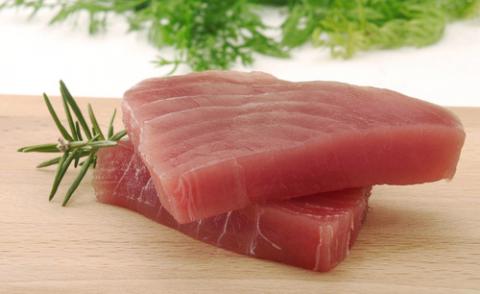
Lift More, Recover Better: How Creatine Fits a Women’s Fitness Routine

Creatine monohhydrate is one of the most researched, effective, and safe performance supplements. No wonder is already MO4T’s fans favorite already.
It supports high-intensity training, strength, power, and lean mass when paired with consistent workouts and adequate protein—benefits that matter whether you’re a beginner, a busy mom lifting 3x/week, or a competitor dialing in progressive overload.
Why creatine Works: the simple truth
During hard efforts—sprints, heavy sets, explosive moves—your muscles use ATP as quick energy. Phosphocreatine (PCr) “reloads” ATP rapidly so you can push harder for those crucial seconds.
Supplementing creatine raises intramuscular creatine/PCr stores ~10–30%, helping you maintain peak efforts, add reps, and recover between bouts. Over weeks, that translates to greater training volume and better strength/power adaptations.
Is creatine safe for women?
Yes—for healthy individuals, creatine monohydrate has a strong safety profile across ages and training levels.

The most common side effect is a small uptick on the scale from intramuscular water (cell hydration), not fat. So people might think it will make you look “bulky”, but it’s not. It Will just support your muscle’s hydration.
Even though it is related to training and exercise, you can still take it even if you don’t work out… just in a smaller dose.
No evidence supports claims that creatine harms kidneys in healthy users or causes hair loss. As with any supplement, consult your clinician if you have medical conditions or take medications.
What it helps—and what it doesn’t
· Shines in: Strength training, HIIT, sprints, power work, and team sports with repeated bursts (think CrossFit® metcons, track intervals, court/field play). Expect improvements in repeated sprint ability, jump height, and training volume when paired with a structured program.
· Less impact in pure endurance: For long, steady aerobic events, benefits are mixed. Creatine may still help with race-critical surges (finishing kicks, hills), but it’s not a primary endurance aid.

How much should women take?
· Daily dose: 3–5 g/day of creatine monohydrate—no cycling required.
· Timing: The most important thing is consistency. Many women prefer post-workout or with a meal. Hydrate well.
Gummies vs. powder: choosing your format
· Powder: Simple, cost-effective, easy to hit a precise 5 g/day. Try Creatine Monohydrate Micronized Powder—unflavored, 5 g per serving, micronized for easy mixing.
· Gummies: Convenient and adherence-friendly (great for on-the-go). Look for transparent dosing and third-party testing. Creatine Monohydrate Gummies (Orange) deliver 5 g in 3 gummies and are third-party tested. Choose between Orange Flavor or Strawberry Flavor.
MO4T quality note: MO4T creatine products are manufactured in a GMP-certified facility and third-party tested for purity—helpful in a category where gummy dosing can vary across the market.
Building your women’s fitness stack
Creatine is a great start for your workout routine. But if you want a more complete stack, you can check out also:
1. Protein you’ll actually take:
o Target ~1.6–2.2 g/kg/day protein from food + supplements. Our clean-label isolate delivers 26 g per scoop and digestive enzymes: ISO26 Whey Protein (vanilla, cookies and cream or chocolate)—sweetened with monk fruit, just 110 kcal/serving.
2. Collagen for joint support:
· Multicollagen Premium is the ideal option for athletes, for those who exercise or play sports, it helps to lubricates cartilage and ligaments, restores elasticity and prevents sports injuries.

1. Recovery & sleep support (optional):
o Magnesium Glycinate may support normal muscle and nervous-system function and better sleep quality—useful when training volume climbs.
o Premium Turmeric: Acts as a powerful anti-inflammatory, promoting overall comfort and mobility. It helps your muscle recover from hard training sessions.
2. Energy for fitness (optional):
o Thermashape: A natural thermogenic and lipolytic formula that increases body temperature, stimulates lipolysis, accelerates metabolism, and boosts energy expenditure, especially during physical activity.
Frequently asked questions (for women)
Will creatine make me “bulky”?
Creatine helps you train harder and recover better; any size changes are primarily lean tissue and intracellular water (a good thing for muscle function). Scale changes of ~1–3 kg are typical in some users but vary widely.
Can I take creatine if I do cardio + lifting?
Yes. It’s most impactful on your lifting/HIIT days; cardio won’t “cancel it out.” For endurance-only phases, consider pausing if extra water weight is a concern.
Do I need a special “women’s” creatine?
No—creatine monohydrate is the gold standard across sexes and life stages when used appropriately. Choose the format you’ll take consistently.
These statements have not been evaluated by the FDA. MO4T products are not intended to diagnose, treat, cure, or prevent any disease.
Sources
· Kreider RB, Kalman DS, Antonio J, et al. International Society of Sports Nutrition position stand: Safety and efficacy of creatine supplementation in exercise, sport, and medicine. J Int Soc Sports Nutr. 2017;14:18. BioMed Central
· Jeukendrup A. Creatine and Performance. Mysportscience Blog, 2021. askerjeukendrup
· Jeukendrup A. Does Creatine Help or Hinder Endurance Performance? Mysportscience Blog, 2024. askerjeukendrup
· Butts J, Jacobs B, Silvis M. Creatine Use in Sports. Sports Health. 2018;10(1):31–34.
· Cooper R, Naclerio F, Allgrove J, Jimenez A. Creatine supplementation and exercise performance: an update. J Int Soc Sports Nutr. 2012;9:33.



